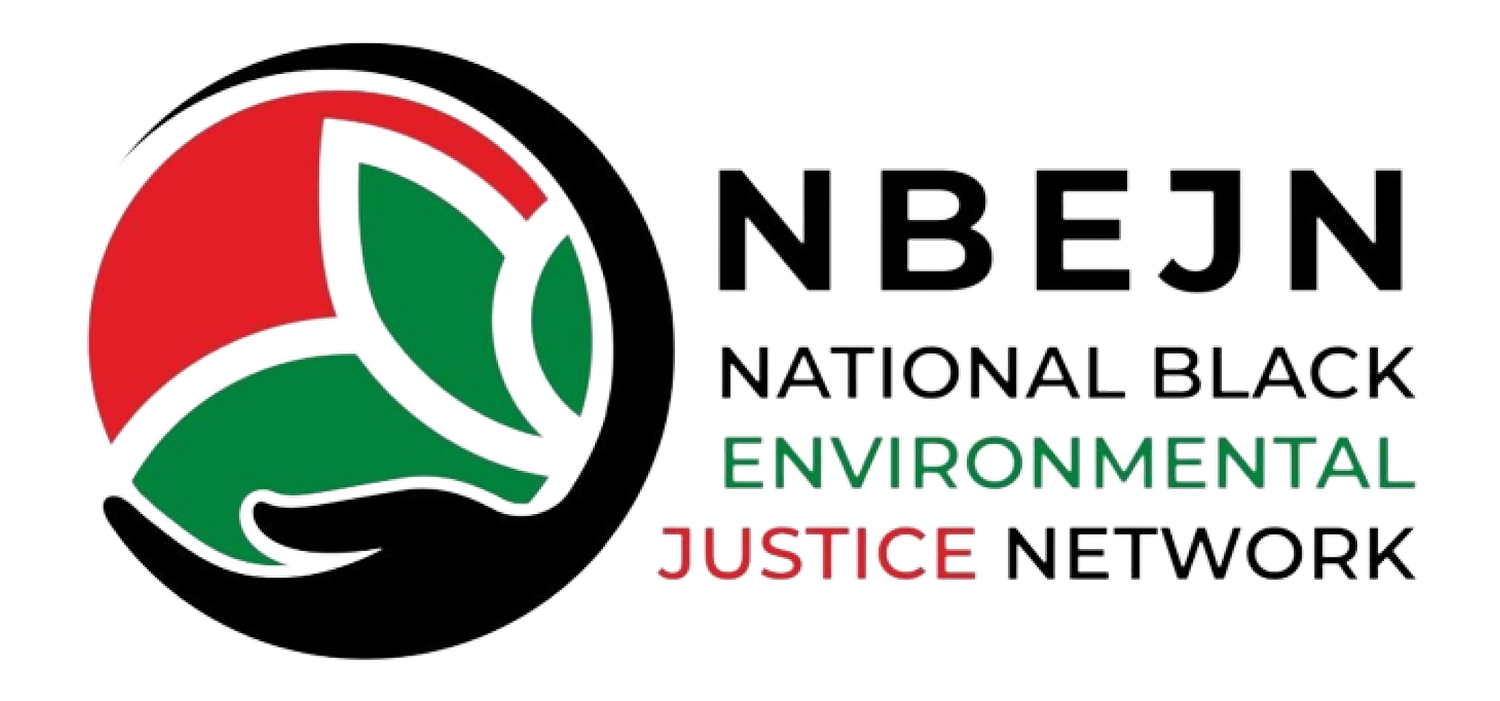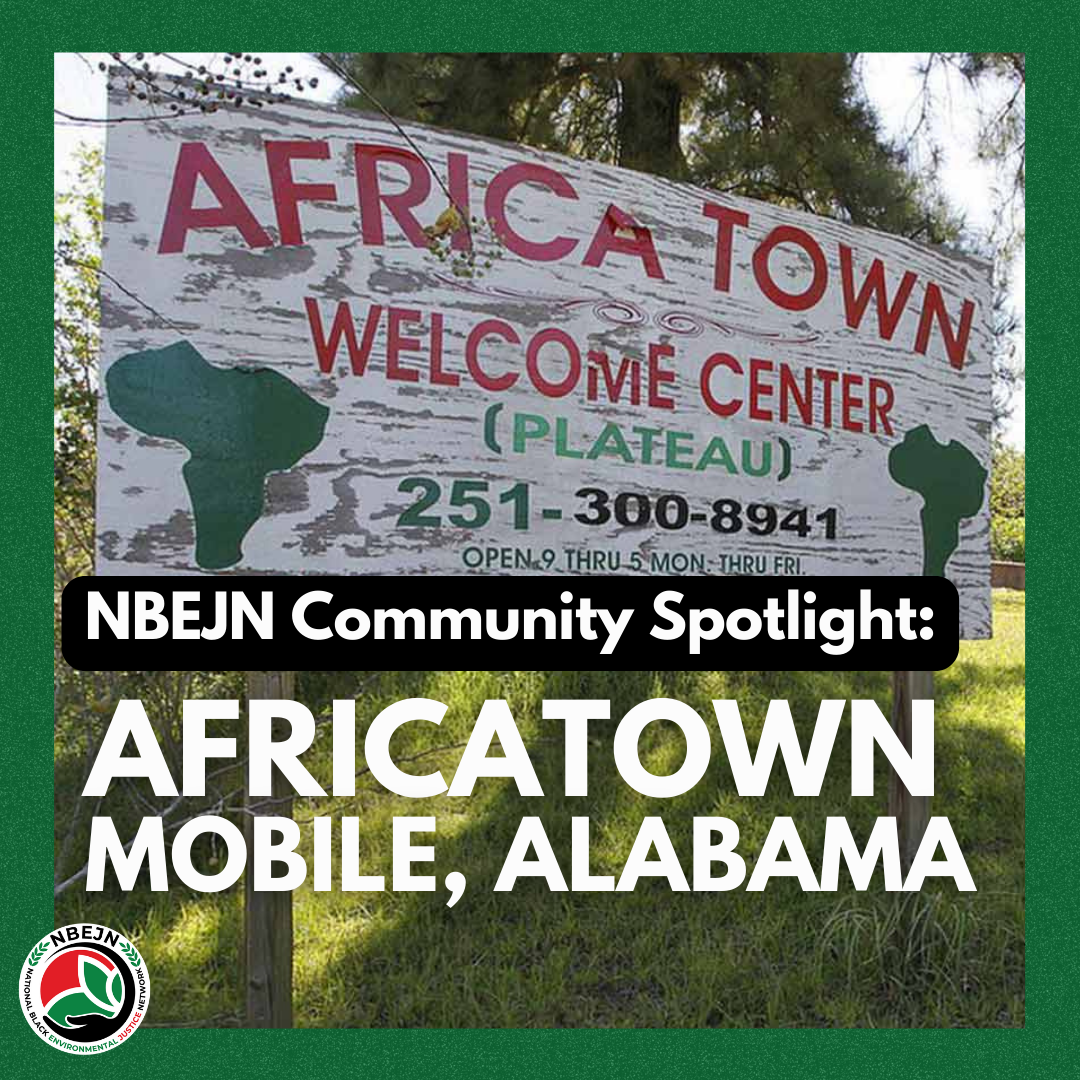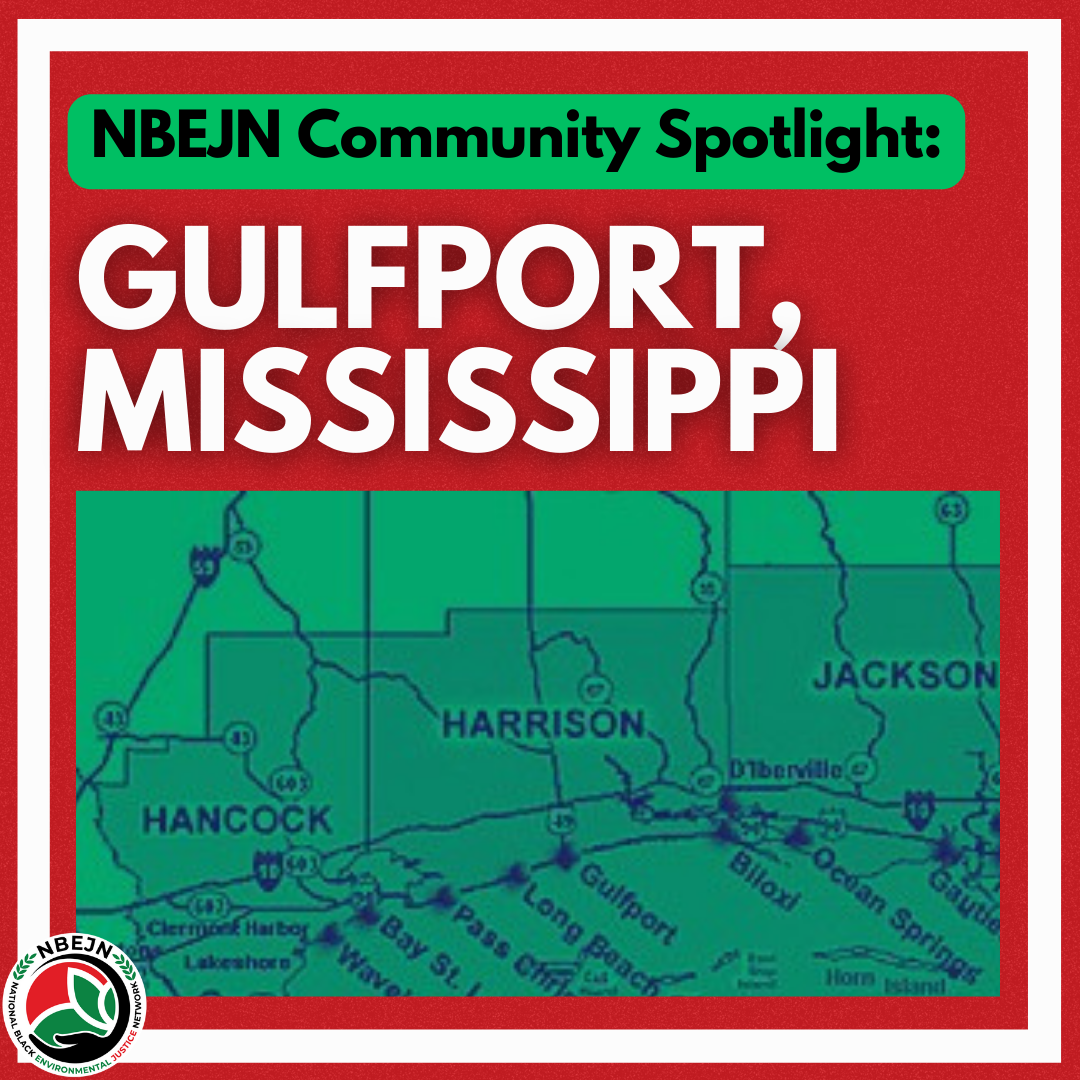Community spotlight
Gulfport, Mississippi Background
Turkey Creek
Forest Heights: Forest Heights was established around 1966 by the National Council of Negro Women, in cooperation with the Department of Housing and Urban Development and supported by the Ford Foundation. It was one of the nation’s first integrated homeownership developments for low-income families and was located in North Gulfport, Mississippi. The name Forest Heights is a tribute to civil rights activist Dorothy Height, who was president of the National Council of Negro Women from 1947 until 1997. This community was devastated by Hurricane Katrina and has continuously been plagued with increased development-generated flooding woes since.
Turkey Creek
Turkey Creek: In 1866, a group of emancipated African Americans settled along Turkey Creek on about 320 acres of land. Freed slaves, Thomas and Melinda Benton, acquired enough land so that their holdings comprised 50 percent of the community. Later settlers purchased property from the Bentons. Residents often planted gardens, grew fruit trees, and raised livestock on their property. By the mid-1950s, infrastructure development in the form of industries, highways, airports and housing construction, associated with the expansion of Gulfport, began to encroach on the Turkey Creek Community Although the Turkey Creek Community predated the founding of the City of Gulfport, it was annexed by the city in 1994. After the devestation of Hurricane Katrina in 2005, developers set their eyes on North Gulfport, further encroaching on Turkey Creek. In 2021, Turkey Creek (the river that runs adjacent to the community) was listed by American Rivers as one of ten most endangered rivers in America due to the continuing threat of development.
Africatown Mobile, Alabama Background
The Clotilda - Africatown's Roots
Cudjo Kazoola Lewis, a founder of Africatown, lived until 1935 and was long thought to be the last survivor of the slaves from the Clotilda living in Africatown. His story in his own words was captured by author Zora Neale Hurston in her book Barracoon.
Africatown is a historic community located near Mobile, Alabama. It was formed by a group of West Africans, transported against their will in the last known illegal shipment of slaves to the United States in 1860 on the slave ship Clotilda (52 years after the Atlantic slave trade was made illegal). 110 enslaved people were smuggled into Mobile on the ship, which was burned to try to conceal its illegal cargo. Retaining many of their customs and cultural practices , more than 30 of these people, believed to be from the region that is now the country of Benin, founded and created their own community in what has became Africatown.
Africatown has faced environmental racism since its foundation with annexation into the town of Mobile in 1960 bringing about zoning much of the community's land for industrial use. Today's Africatown is heavily polluted by industrial manufacturers and chemical refineries.
Descendant
(Documentary Film, 2022)
This Netflix-produced documentary spotlights the Africatown community. The film follows descendants of the survivors from the Clotilda as they celebrate their heritage and take command of their legacy in the midst of the discovery of the remains of the last-known slave ship to arrive in the United States. The Clotilda's unearthing offers them a tangible link to their ancestors.
Community Leaders and NBEJN Organizational Members
C.H.E.S.S.
(
Clean, Healthy, Educated, Safe, Sustainable)
C.H.E.S.S. is a community organization leading the present-day fight to protect and preserve the Africatown Historic District. C.H.E.S.S. organizes projects geared towards beautifying Africatown's streets and homes, producing quality produce and living standards, and preserving the first public school for African-Americans in the state of Alabama.
Major Womack (the organization's executive director) serves as a partner to the Deep South Center for Environmental Justice's HBCU-CBO Gulf Equity Consortium and Gulf Water Justice Project and is also a member of NBEJN. C.H.E.S.S., supported by these partnerships, has organized against further industrial siting and toxic land use proposals. They continue to work tirelessly for a clean, healthy, educated, safe and sustainable community.
EEECHO
(
Education, Economics, Environmental, Climate And Health Organization)
Founded in the wake of Hurricane Katrina in 2005, EEECHO describes their organization as a "network of organizations and activists bolstering communities with a voice for self-reliance and the knowledge and skills to thrive." Co-founders Kathy Egland and Ruth Story, both involved with the NAACP at local and national levels, started the organization to address environmental concerns in their hometown.
EEECHO has fought continuously since its founding to keep their community safe. Currently, they focus on halting development on critical wetlands that protect from flooding the historically significant African American neighborhoods of Turkey Creek and Forest Heights. The developments proposed would sit on contaminated soil from a former fertilizer plant, placing vulnerable nearby communities at further risk.









